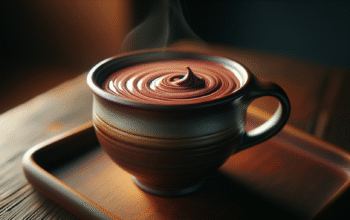Have you ever wondered what the advantages of choosing decaf coffee beans are? If you’re someone who loves the taste of coffee but wants to limit your caffeine intake, this is a question you might find yourself asking often. Decaf coffee can be a delightful choice that offers numerous benefits, and in this article, we’ll cover everything you need to know.
What Are Decaf Coffee Beans?
Decaf coffee beans refer to coffee beans that have undergone a process to remove most of their caffeine content. The decaffeination process leaves the beans with approximately 1-2% of their original caffeine, making them an appealing option for those sensitive to caffeine. You can enjoy the rich flavor of coffee without the jittery effects that caffeine can sometimes bring.
How Are Coffee Beans Decaffeinated?
Understanding how decaf coffee is made can enhance your appreciation for this brew. Various methods exist for decaffeination, and each has its unique process:
-
Swiss Water Process: This method uses only water to extract caffeine from the beans. By soaking them in hot water, soluble compounds, including caffeine, dissolve and are removed. The flavor compounds are then infused back into the beans, ensuring that taste is preserved.
-
Chemical Solvents: Some methods use chemical solvents, such as ethyl acetate or methylene chloride, to separate caffeine from the beans. While effective, some consumers prefer to avoid this method due to potential chemical residues.
-
Carbon Dioxide Method: This process uses CO2 in its supercritical state to extract caffeine. The advantage of this method is that it targets caffeine specifically while leaving other flavor compounds relatively intact, leading to a robust flavor in your cup.
Each method has its supporters, and the choice often comes down to personal preference regarding taste and process.
Why Choose Decaf Coffee?
Making the switch to decaf can be beneficial for many reasons. If you’re concerned about your caffeine consumption, here are some solid reasons to consider:
1. Reduces Caffeine Intake
If you’re sensitive to caffeine or wish to reduce your overall intake, decaf coffee is an excellent option. Many people experience anxiety, restlessness, or insomnia due to caffeine, and opting for decaf can help mitigate these effects. You can still enjoy your coffee rituals without the overstimulation of caffeine.
2. Better for Heart Health
Studies have indicated that excessive caffeine consumption may lead to increased heart rate and blood pressure. For individuals with pre-existing heart conditions, switching to decaf can be a healthier choice. You might find peace of mind in knowing that you can enjoy coffee with fewer risks to your heart health.
3. Pleasant Evening Beverage
Craving a cup of coffee in the evening but worried about staying awake? Decaf is your answer. You can savor a warm, comforting cup without the worry of disrupting your sleep schedule. Enjoy that cozy coffee moment while unwinding after a long day.
4. Antioxidant Benefits
Coffee, whether decaffeinated or not, is a rich source of antioxidants. These compounds can combat oxidative stress and inflammation in your body. Even decaf retains many beneficial antioxidants, meaning you can still reap these health benefits while enjoying your favorite brew.
5. Maintains Coffee’s Flavor
One common misconception about decaf coffee is that it lacks flavor compared to regular coffee. However, many high-quality decaf options can deliver rich and delightful taste profiles, just as caffeine-rich coffees do. With enough options available, you’re likely to find a decaf coffee that pleases your palate.

Nutritional Profile of Decaf Coffee
You might be curious about what decaf coffee brings to the table nutritionally. Understanding the nutritional content can help you make informed choices about your beverage.
| Nutritional Element | Amount (per 8 oz cup) |
|---|---|
| Calories | 2 |
| Protein | 0.3 grams |
| Fat | 0 grams |
| Carbohydrates | 0 grams |
| Fiber | 0 grams |
| Antioxidants | High |
It’s remarkable to see that decaf coffee is low in calories and virtually fat-free, making it a safe choice for many dietary preferences. Additionally, the antioxidants present can benefit your health, as discussed earlier.
Potential Downsides of Decaf Coffee
While decaf coffee has numerous benefits, it’s important to be aware of potential downsides. Being informed helps you make the best choices for your health.
1. Caffeine Sensitivity
Though decaf is low in caffeine, it’s not entirely caffeine-free. If you’re particularly sensitive to caffeine, even small amounts may still affect you. It’s wise to monitor how your body responds to decaf to avoid any unwanted effects.
2. Chemicals in Some Products
As previously mentioned, some chemical processes are used to decaffeinate coffee beans. If you prefer to avoid chemical solvents, be sure to check the label or opt for brands that use natural decaffeination methods like the Swiss Water Process.
3. Taste Preference
While many enjoy the flavor of decaf coffee, others may find a difference in taste compared to regular coffee. If you’re switching to decaf, it may require a little experimentation to find a brand or roast that suits your taste buds.

How to Brew the Perfect Cup of Decaf Coffee
Now that you’re aware of the benefits, let’s talk about how you can enjoy the perfect cup of decaf coffee. Brewing methods can greatly affect the taste and aroma of your coffee.
1. French Press
One of the easiest methods for brewing decaf coffee is using a French press. Here’s how to do it:
- Ingredients: Coarsely ground decaf coffee beans and hot water.
- Ratio: Use a 1:15 ratio of coffee to water, adjusting based on your flavor preference.
- Steps:
- Add coffee grounds to the French press.
- Pour in hot water (just off the boil).
- Stir gently and let it steep for about four minutes.
- Press down the plunger and pour into your favorite mug!
2. Pour Over
Pour-over coffee is great for a clean and flavorful cup:
- Ingredients: Medium ground decaf coffee beans and hot water.
- Ratio: A 1:16 ratio is ideal for a balanced flavor.
- Steps:
- Set your dripper over a cup and place a filter inside.
- Add the coffee grounds and gently pour hot water over them in circular motions.
- Allow coffee to drip through and enjoy!
3. Espresso Machine
For those who love a strong flavor, a decaf espresso is an excellent choice:
- Ingredients: Finely ground decaf coffee beans and water.
- Ratio: Typically, a double shot uses around 18-20 grams of coffee.
- Steps:
- Fill the portafilter with grounds and tamp evenly.
- Attach to the machine and start the extraction process.
- Enjoy a rich shot of decaf espresso!
Pairing Decaf Coffee with Foods
Finding the right food pairings can elevate your decaf coffee experience. Here are some delightful combinations:
1. Pastries and Sweets
Decaf coffee complements many baked goods, from croissants to muffins. The buttery richness of pastries pairs wonderfully with the natural flavors in coffee.
2. Chocolate
If you have a sweet tooth, chocolate treats, such as brownies or dark chocolate, can create an exquisite pairing with decaf coffee. The bitterness of the chocolate is beautifully balanced by the coffee’s flavor.
3. Breakfast Dishes
Your morning pancakes or waffles can be even more enjoyable with a cup of decaf coffee. The lightness of your breakfast will harmonize perfectly with this smooth brew.
Choosing Quality Decaf Coffee Beans
Selecting high-quality beans can significantly enhance your decaf coffee experience. Here are some tips to help you choose wisely:
1. Origin Matters
The region where the beans are grown will greatly influence the flavor profile. Many coffee enthusiasts prefer single-origin coffees for their unique tastes. Explore beans from Colombia, Brazil, or Ethiopia to discover distinctive flavors.
2. Roast Level
Understanding roast levels can also impact your choice. Light roasts often maintain more of their original flavor and acidity, while dark roasts tend to be richer and bolder. Experimenting with different roast levels can help you find your favorite.
3. Freshness
Coffee tastes best when it’s fresh. Always look for recent roasting dates on the packaging and choose products that prioritize freshness to ensure you get the most delightful cup.
The Environmental Impact of Decaf Coffee
When choosing decaf, it’s worth considering the environmental implications of your coffee consumption. Coffee farming can pose challenges, from deforestation to water usage. Here are some ways to make more sustainable choices with decaf:
1. Opt for Organic
Choosing organic decaf coffee can help you avoid harmful pesticides and support environmentally friendly farming practices. Organic farms often use methods that sustain soil health and promote biodiversity.
2. Fair Trade
Look for Fair Trade certifications when buying your coffee. This ensures that farmers receive fair wages and work in safe conditions, contributing to more sustainable and responsible farming practices. By supporting Fair Trade, you can enjoy your coffee with a clear conscience.
3. Local Roasters
If possible, buy from local roasters who prioritize sustainable sourcing practices. Supporting local businesses can reduce your carbon footprint and help the community while enjoying high-quality coffee.
Conclusion
Decaf coffee beans offer a multitude of benefits, from reduced caffeine intake to essential antioxidants and delightful flavors. Whether you enjoy it as a warm evening ritual or a morning pick-me-up, enjoying decaf need not compromise taste or enjoyment. By choosing quality beans and sustainable practices, you can savor every sip and feel great about your choice. So, next time you pour yourself a cup, remember the advantages you’re embracing—harmony in taste and health!



